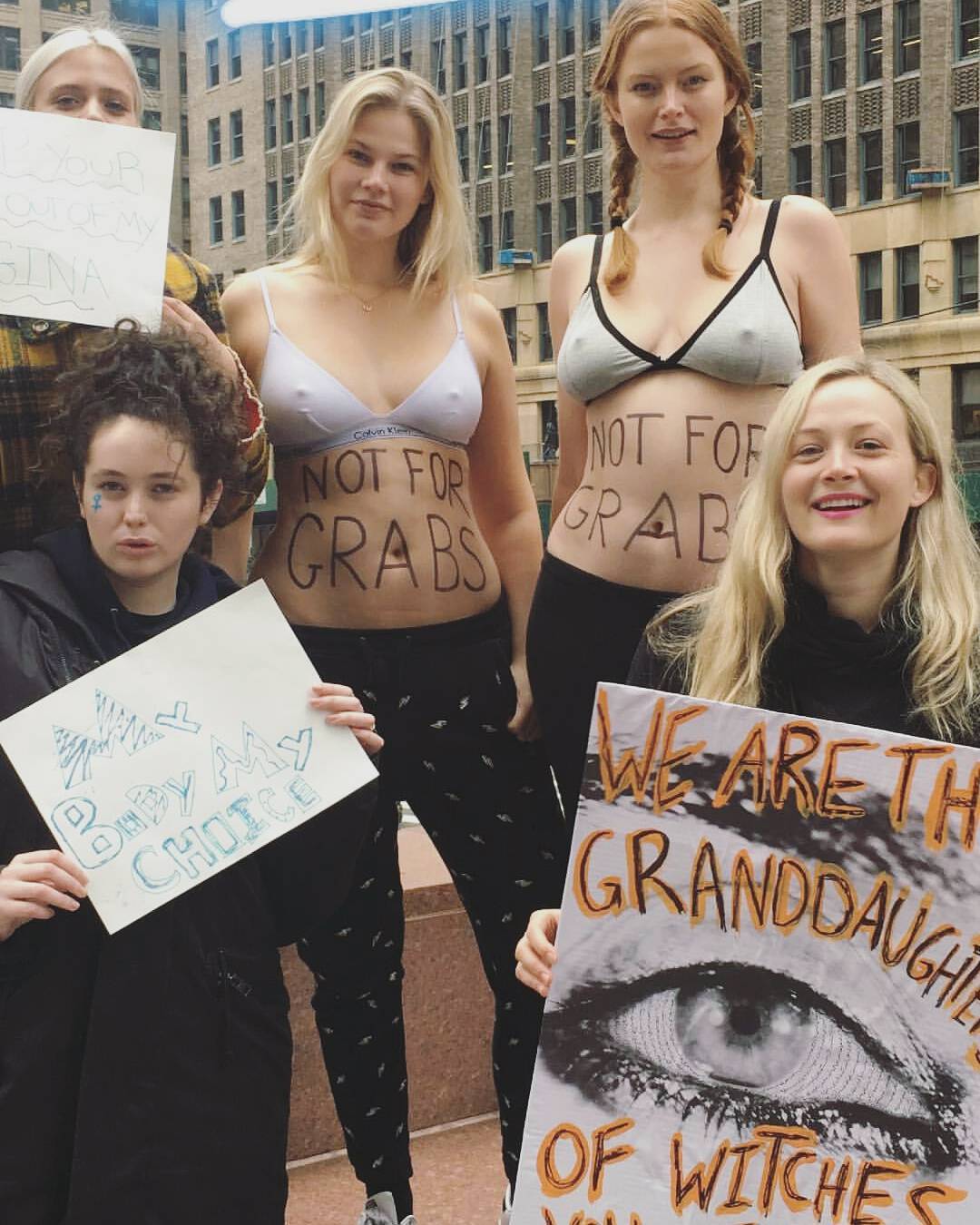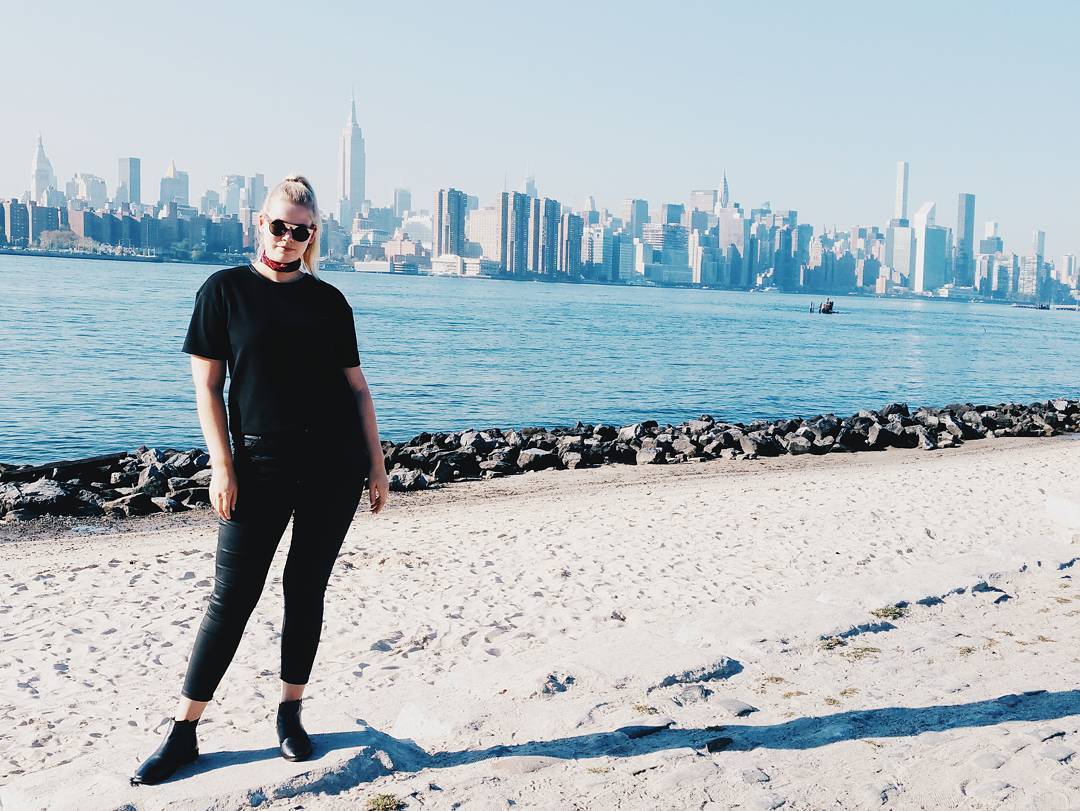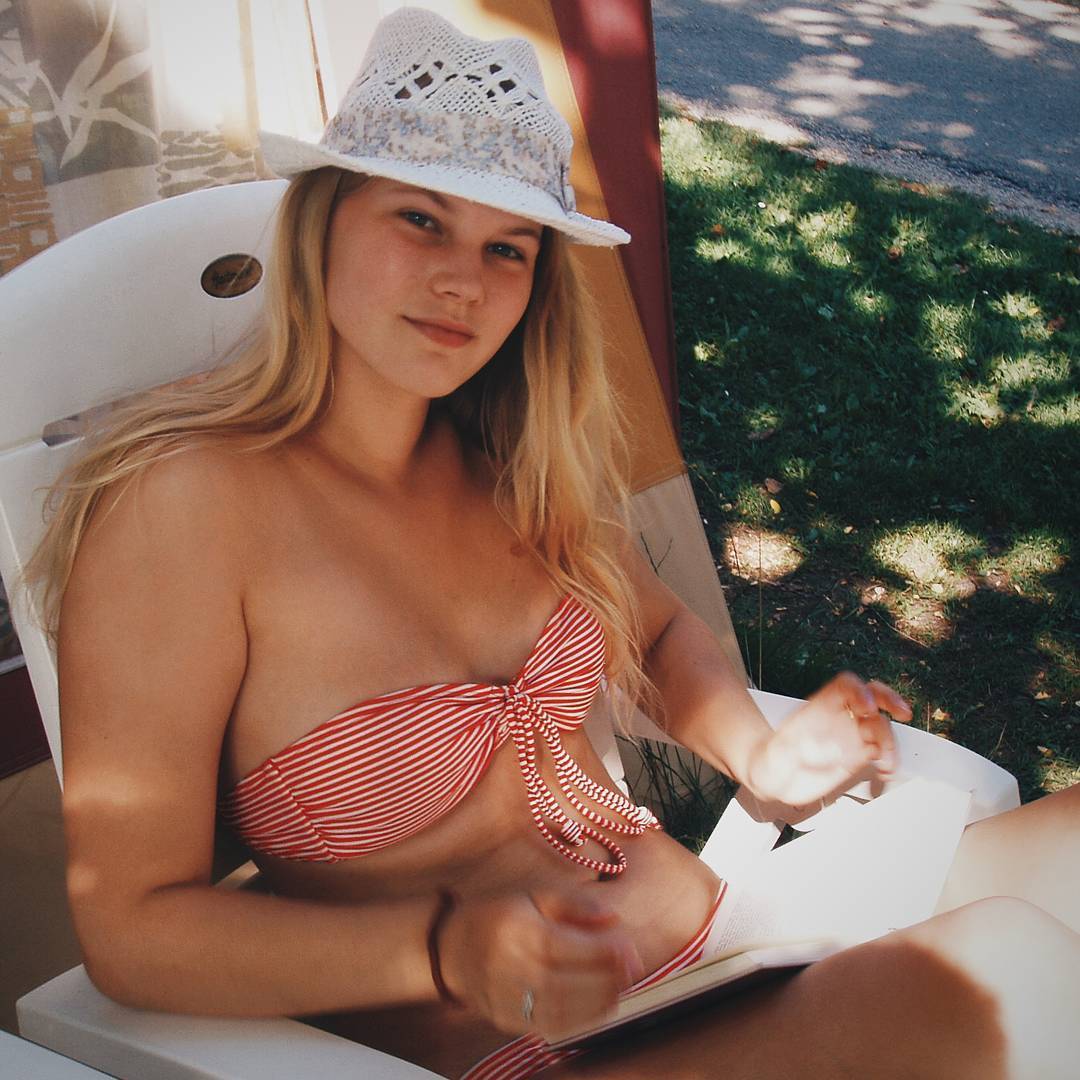Sunday, April 2 was World Autism Awareness Day, and it was the day that I — a (plus size) model — went public about having Asperger’s syndrome (a type of autism). It wasn’t that I had been hiding it before that specific day; most of my friends, family and bookers knew. But I never included it in my social (media) life. When I was diagnosed, at 19 years old, I was still in business school. I thought that it would limit my opportunities if people knew, so I decided that Asperger’s wasn’t a part of my life that I wanted to share with others. Sometimes I would talk about it with a classmate, but I never got the satisfaction or recognition I wanted from those conversations. Dismissive comments about how I don’t look autistic or how I could be in university, made me feel like I had to defend my diagnosis. Unfortunately it’s very common to get comments like these when you’re autistic, as people don’t understand the condition.
Starting from the age of 10 I became aware of myself not being ‘neurotypical.’ I started to feel like I didn’t belong in this world, which sounds weird but it was very obvious to me. Nature fascinated me, and I loved spending every minute of my time in trees, plants, grass, and encyclopedias. Even though I liked to socialize and had a few friends, I started to feel isolated and different. When I started high school, aged 12, I decided that I wasn’t going to let myself be the outsider again, and started actively copying the behavior of other (older) teenagers. In my effort to be accepted, I was finding myself in situations that I didn’t have the tools to navigate out of. I let people use me for their own advantages because I thought that I was supposed to do that. I wasn’t aware of what ‘normal’ was for my age, and when I started to get bullied because of that, I felt like everything was falling apart. How could people not like me, when I had done everything to fit the norm?

The only thing that gave me relief in my world of frustration and confusion was self-harm. It’s unfortunately common for girls with Asperger’s to be easy targets for both sexual abuse and mental health problems; they tend to mask their difficulties very well, which makes them vulnerable. Their symptoms are still being overlooked and misdiagnosed a lot, which is something I feel very heavy-hearted about.
Severe problems with processing basic information appeared while I was at university. Activities like taking a crowded bus twice a day were making me very stressed out. I started pulling my hair out because of stress and frustration, my OCD worsened, and errors came up frequently. During errors, my mind is desperately trying to get control over all of the information that’s coming in, making me become non-communicative and stare with my eyes wide open into the distance — usually while rocking back or some other type of movement.
I was so relieved when I got my diagnosis; it felt like recognition. Finally I wasn’t just some weirdo, I actually belonged to a group of people that were just different. It gave me clarity, belonging, peace of mind, and support. But while it was giving me more insight about myself, I struggled with the question of what Asperger’s meant to me, and if it defined me. There wasn’t anyone to look up to, except for Einstein and Nikolas Tesla, and a bunch of other masterminds. When I started modeling again (I modeled a bit when I was a teenager) it raised a lot of questions for me. Would I really be able to travel the world without my support system at home and without any sense of stability? I decided to give it a year; and I have to admit that it was very difficult in the beginning, and it still is sometimes. Not knowing what your schedule is like for the next coming days (let alone weeks) makes it hard to make plans, and not having anything to do for a couple of days makes it easy for me to get isolated. Traveling to another city or country is really fun for most, but if you’re too anxious to try out a restaurant and therefore decide to just not eat that night, it can be difficult. When you want to be in the presence of people, but you don’t have the energy for social interaction, you’re going to be alone.

The fashion industry is a very social one, so telling people that I have a disorder that makes you struggle with basic things like communication and social interaction, scared me, as did people’s preconceived notions about Asperger’s. So initially, I stayed silent. Let me be clear about something: I was NEVER ashamed of myself, nor my diagnosis, but I didn’t want people to define me based on one sole thing. So I just continued on being myself while fitting in the standard norms — what I’ve always done.
It’s only recently I realized that by keeping such a key part of myself out of my social life, I still wasn’t as free as I wanted to be. Am I really an advocate for autism when I’m not speaking up on my platform? You can’t separate me from my autism, and by not being open about it, I felt like I was keeping half of my personality from others, but also from myself. Over the last two years, I’ve become so much more confident, social, flexible, and relaxed than I ever thought I could be. I keep pushing myself, knowing that it will get easier. Even though my life can be more difficult and challenging, I would never sacrifice the greater part of who I am, nor my goals, to be considered ‘normal.’ There’s nothing wrong with me, and taking blame for someone else’s ignorance about your disability is something you should never put upon yourself.

So I decided that there was only one thing left to do: step up and talk, use my platform to increase awareness about autism, and also show the fashion industry that beauty is beyond just your looks. We need role models in this industry that have something to say; they need to empower people by individuality, diversity, and personality. It would have meant a lot to me if I had someone to look up to when I was struggling to keep my head above the water, to realize that my ‘disability’ really wasn’t limiting my opportunities.
When my agency approached me and asked if I wanted to talk about my autism outside of the borders of my private life, I was thrilled (and still a little scared). Finally it was my chance to talk about something I’m so passionate about. The fashion industry is changing; representation in size, age, gender, and race is getting pushed out there. But I’d like to shine a light on what’s outside of all those look-related components, and there is no better timing than today.
Read: Are we really on the path to model diversity?
Credits
Text Melissa Koole
Image via Instagram
